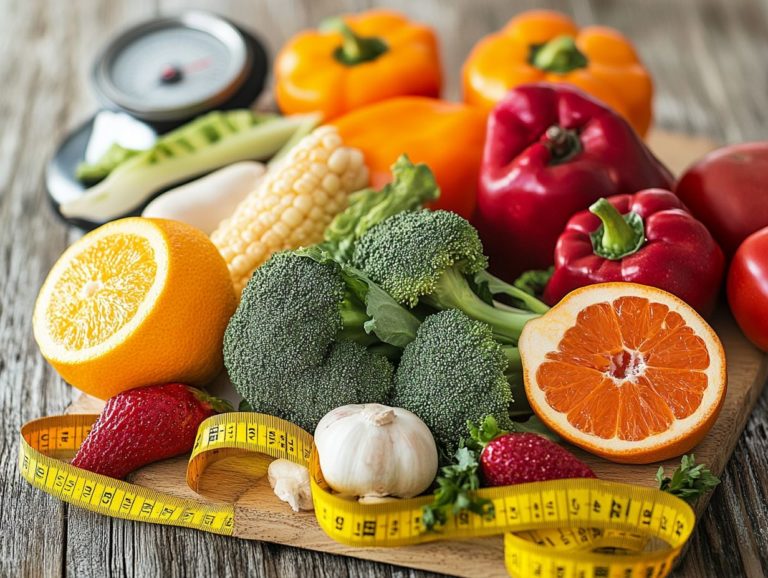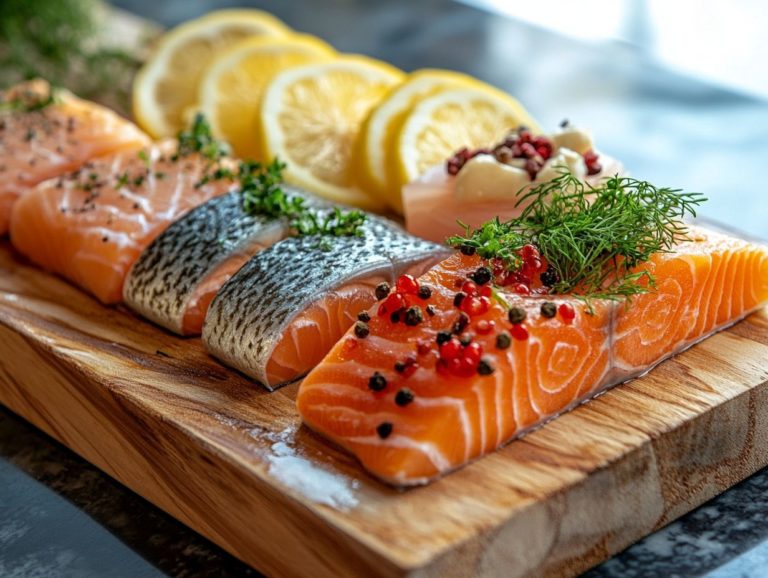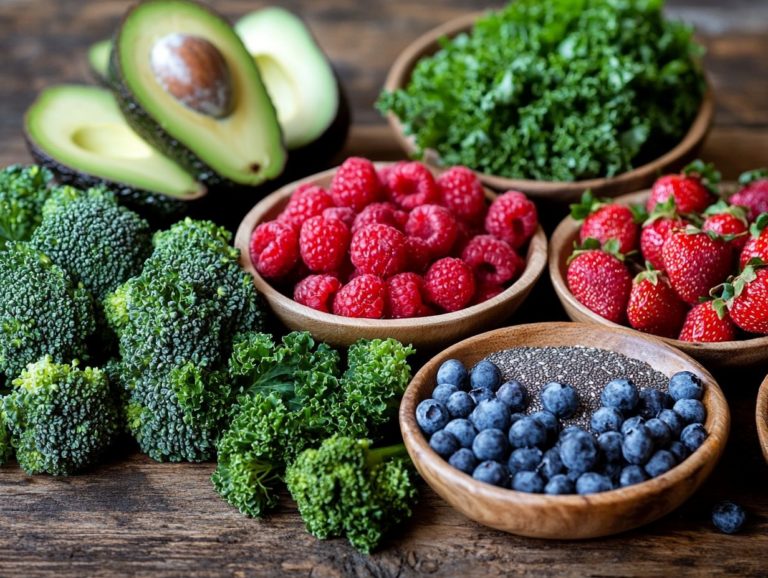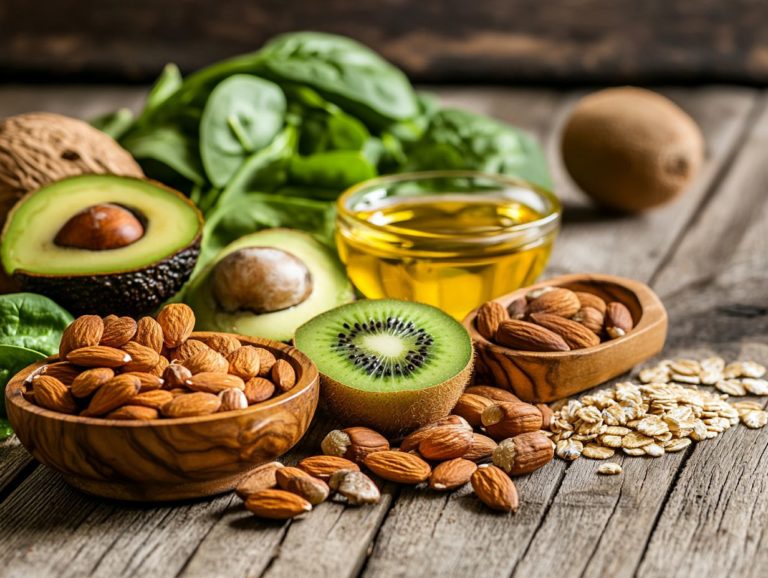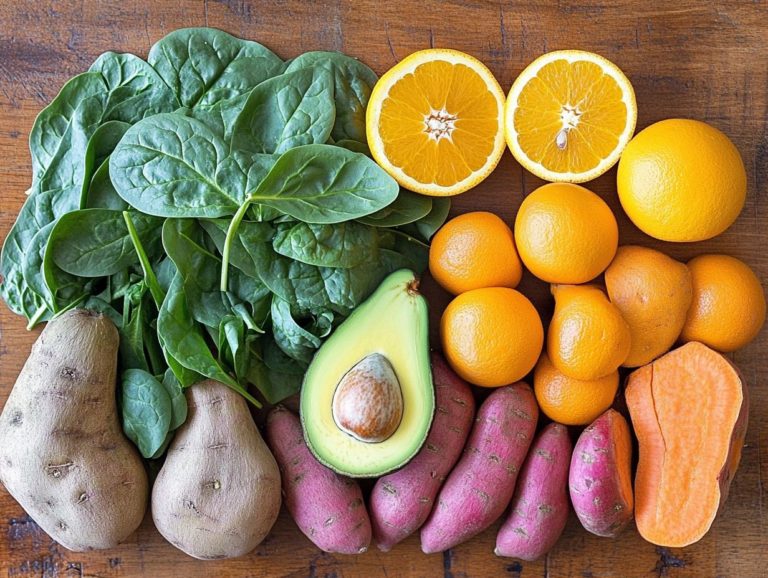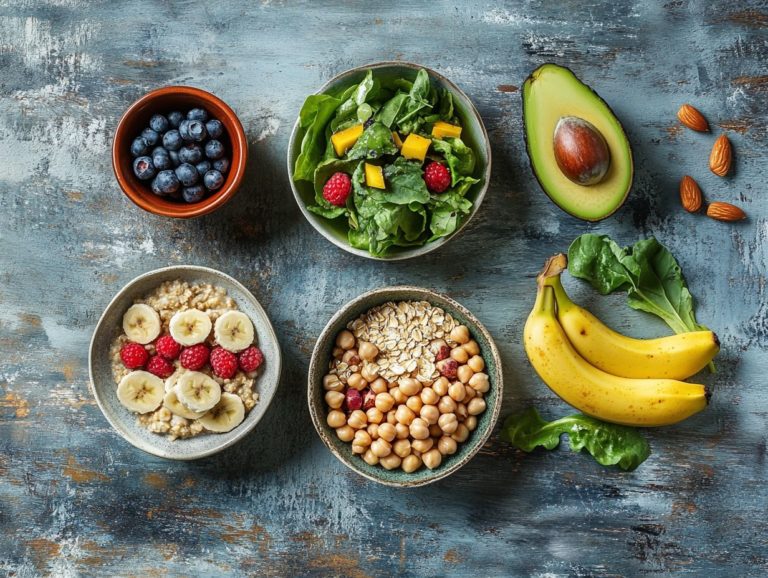Top Sources of Nutrients for Athletes
Proper nutrition serves as the cornerstone of athletic performance, influencing every aspect from your energy levels to your recovery. You require a careful balance of carbohydrates, proteins, and fats, along with essential vitamins and minerals to fuel your body effectively.
This exploration delves into the key components of an athlete s diet. We ll highlight top food sources, tailored nutrition strategies for different sports, and the role of supplementation. By understanding these elements, you can empower yourself to optimize your performance and achieve your goals.
So, dive in and discover how nutrition can elevate your game!
Contents
- Top Nutritional Sources for Athletes:
- The Importance of Proper Nutrition for Athletes
- Nutrients for Athletes
- Micronutrients for Athletes
- Conclusion
- Top Sources of Nutrients for Athletes
- Nutrition Strategies for Different Types of Athletes
- Supplementation for Athletes
- Frequently Asked Questions
- What are the top sources of nutrients for athletes?
- Why do athletes need specific sources of nutrients?
- What specific nutrients are important for athletes?
- Are there any vegetarian or vegan options for athletes?
- Can athletes get all their necessary nutrients from food alone?
- How much hydration do athletes need during exercise?
Top Nutritional Sources for Athletes:
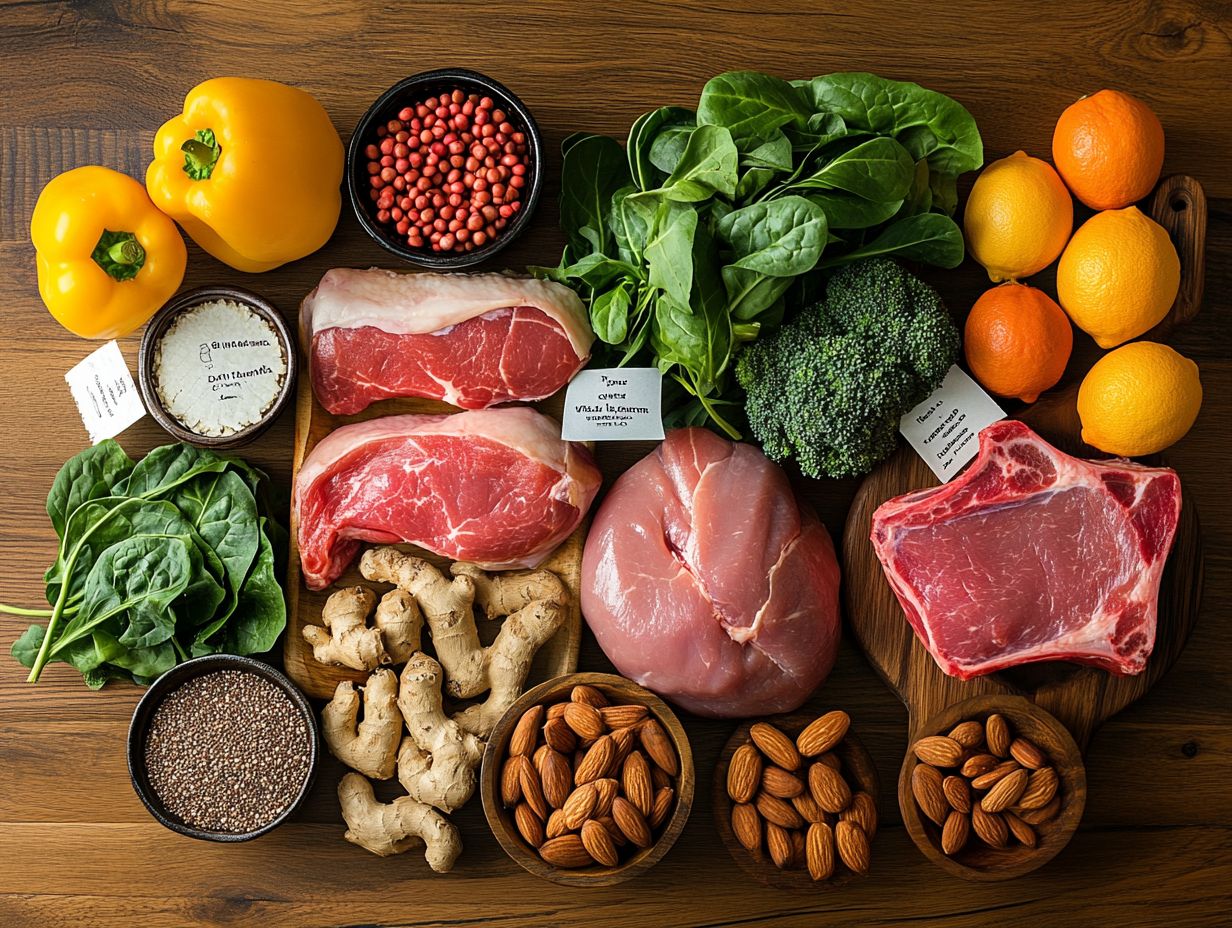
Proper nutrition is crucial for athletes to perform at their best. A balanced intake of carbohydrates, proteins, and fats is essential for providing energy, repairing muscle, and regulating body processes. The top sources include whole foods such as lean proteins, complex carbohydrates, healthy fats, and a variety of fruits and vegetables.
The Importance of Proper Nutrition for Athletes
Proper nutrition is vital for you as an athlete; it directly affects your performance, energy levels, and overall health. Achieving the right balance of calories, carbohydrates, proteins, and fats optimizes your training results and reduces the risk of injuries.
You rely on nutrition for hydration and recovery, making it essential for every athlete, whether you’re at the University of Idaho or competing at elite levels.
Organizations like the National Institutes of Health and the Academy of Nutrition and Dietetics stress that a well-structured diet provides the crucial nutrients needed to support your rigorous training and elevated athletic performance.
Nutrients for Athletes
Nutrients are essential in your diet as an athlete; they deliver the energy and foundational elements crucial for optimal performance. This includes carbohydrates, proteins, and fats, each playing a distinct role in your overall nutrition strategy.
Carbohydrates are your primary fuel, while proteins support muscle repair and growth. Healthy fats provide sustained energy, keeping you going through demanding training sessions.
Grasping the right balance of these nutrients is vital for reaching your fitness goals and maintaining peak performance.
Carbohydrates, Proteins, and Fats
Carbohydrates are your primary source of energy, fueling intense workouts and aiding recovery. While simple sugars can offer a quick boost, complex carbohydrates like whole grains provide sustained energy, crucial for endurance athletes.
Fruits and vegetables are packed with vital nutrients and antioxidants, helping you combat oxidative stress from rigorous training. Proteins are essential for muscle repair and growth; think chicken, fish, tofu, and beans to supercharge your recovery.
Incorporating healthy fats from sources like avocados, nuts, and olive oil supports cellular function and enhances the absorption of essential fat-soluble vitamins.
Balancing these nutrients fuels your performance and ensures optimal recovery and long-term health, giving you that competitive edge.
Micronutrients for Athletes
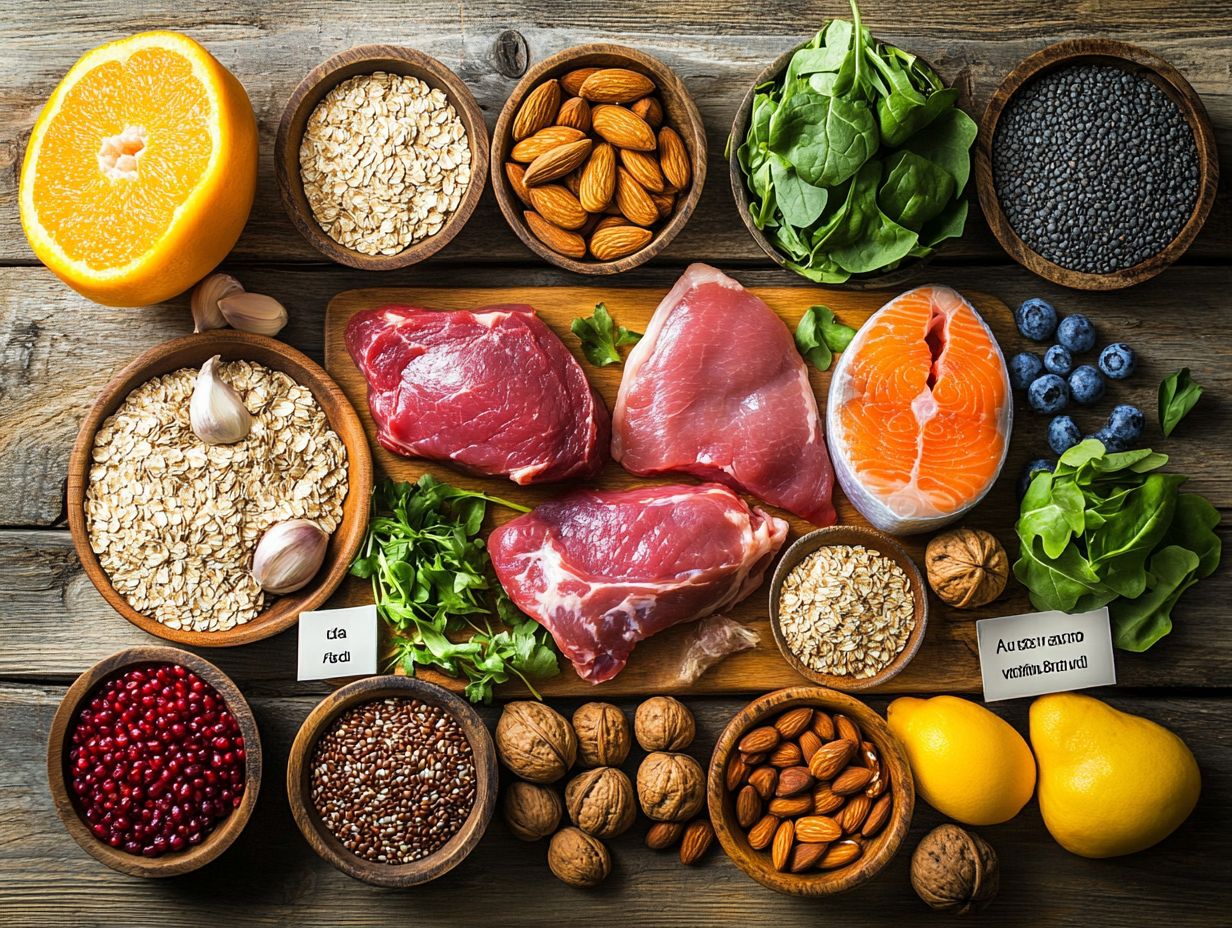
Micronutrients, while needed in smaller quantities, are essential for optimizing performance and maintaining excellent health as an athlete.
These vital vitamins and minerals play significant roles in metabolic processes, immune function, and hydration. For example, vitamins B and C are crucial for energy production and recovery, while minerals like calcium and magnesium bolster muscle function and support bone health.
It s crucial for you to consume a varied diet rich in fruits, vegetables, and whole foods to meet your micronutrient needs and elevate your athletic capabilities.
Conclusion
Nutrition is fundamental to achieving your athletic goals. Start focusing on your nutrition today to boost your performance!
Vitamins and Minerals Essential for Performance
Vitamins and minerals are essential for athletes. They boost performance, support energy metabolism, and maintain overall health.
A deficiency in these nutrients can reduce performance and cause fatigue. Prioritize your micronutrient intake.
B vitamins convert carbohydrates into energy. Symptoms like weakness or muscle cramps may signal deficiencies.
Incorporate a variety of fruits and vegetables into your meals. Legumes and lean meats can fulfill your mineral needs.
Simple changes can enhance your nutrient intake. Enjoy a smoothie with spinach and berries after workouts or snack on nuts and seeds.
Top Sources of Nutrients for Athletes
When optimizing nutrition for athletes, choosing the right food sources is essential. Whole foods packed with vital nutrients, including top sources of nutrients for bone health, can profoundly influence your energy levels, performance, and recovery.
Prioritize a diverse array of options, including fruits, vegetables, whole grains, and lean proteins, to ensure you re getting the necessary vitamins and minerals crucial for optimal health.
Sports drinks are important for hydration and restore lost electrolytes during intense exercise. They are a valuable asset in your diet.
Food Options for Optimal Nutrition
To achieve optimal nutrition, focus on food options that are both nutrient-dense and energy-rich. Incorporating whole grains and lean meats into your diet is essential, but don t overlook healthy fats from sources like avocados and nuts; they play a crucial role in energy storage and hormone regulation.
If you re aiming to boost your endurance, reach for foods rich in healthy carbohydrates, such as sweet potatoes and oats. They re ideal for fueling your performance.
In terms of meal preparation, consider batch-cooking grains and proteins ahead of time to simplify your weekday meals. Act fast! Eating a balanced meal within 30 minutes post-workout can dramatically boost recovery and muscle synthesis, helping you stay at the top of your game.
Nutrition Strategies for Different Types of Athletes
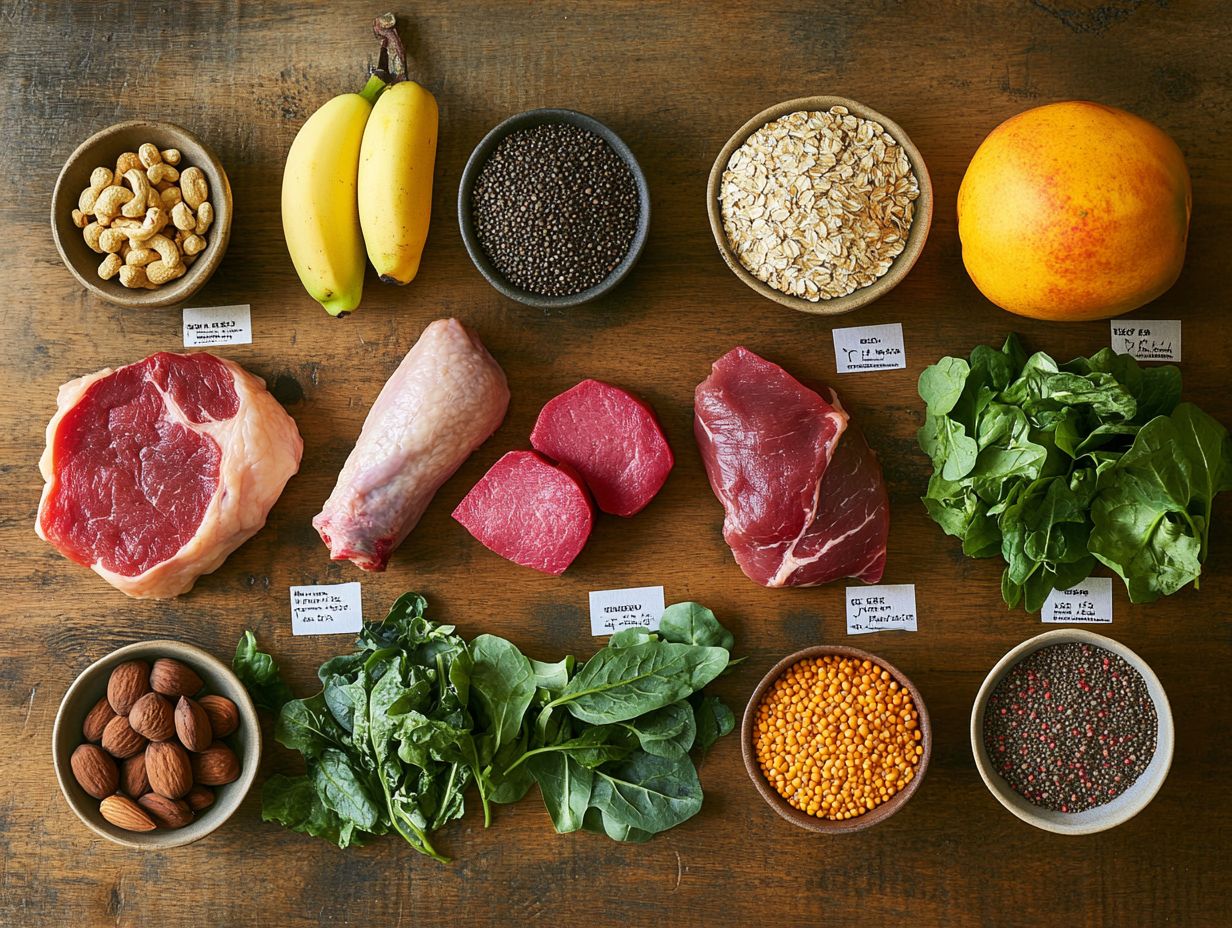
Nutrition strategies should be meticulously crafted to cater to the unique needs of various athletes, given that their performance goals and training regimens can differ dramatically.
Whether your focus is on weight loss, muscle building, or endurance training, a tailored diet is crucial for ensuring you receive the appropriate balance of fats, proteins, and carbohydrates necessary for peak performance.
It s imperative to consider factors such as the intensity of your training, your individual metabolism, and the specific requirements of your sport when devising a comprehensive nutrition plan.
Specific Nutritional Needs for Different Sports and Activities
Different sports and activities come with unique nutritional requirements. Each sport exerts distinct demands on your body.
If you’re an endurance athlete, you’ll need a higher intake of carbohydrates to power through long sessions. Strength athletes, on the other hand, will focus on protein to support muscle growth.
Hydration is essential across all sports, but specific needs can vary based on activity intensity and environmental conditions. Understanding these nuances allows you to optimize your diet for enhanced performance.
Imagine a marathon runner thriving on complex carbohydrates! These fuel their endurance and power them through long distances. In contrast, sprinters often choose easily digestible options for immediate energy.
If you engage in high-intensity interval training, prioritize a balanced mix of proteins and carbohydrates. This combination aids in recovery and muscle repair.
Your hydration strategy is crucial too. If you compete in hot climates, ramp up fluid intake and consider electrolyte replacements. Those in cooler settings might manage with plain water.
Adjusting your dietary plan to meet sport-specific demands is vital for peak performance.
Supplementation for Athletes
Supplementation can significantly enhance your athletic performance, especially when dietary sources fall short.
Key vitamins and minerals, such as vitamin D, omega-3 fatty acids, and electrolytes, elevate recovery, increase energy levels, and enhance overall health.
However, remember that supplements should complement a well-rounded diet, not replace whole foods. Working with a nutrition expert can help you find suitable supplementation strategies tailored to your needs.
When and How to Supplement for Optimal Performance
Timing and method of supplementation are essential for athletes striving for optimal performance. Certain nutrients provide maximum benefits when consumed at strategic moments.
For instance, protein supplements work best right after training sessions to support muscle recovery. Hydration supplements are vital during intense workouts.
By understanding your body’s unique needs and your sport’s specific demands, you can make informed decisions about supplementation. A well-timed pre-workout blend can significantly enhance energy and focus, especially for endurance athletes or those engaged in high-intensity training.
This blend may include carbohydrates and electrolytes to fuel your body efficiently. During competitions, quick-digesting carbohydrates like gels or chews provide immediate energy, helping you maintain peak performance.
After exercising, consider incorporating specific amino acids that help muscle recovery alongside protein to reduce muscle soreness and enhance recovery. By tailoring your supplementation strategies to your activities, you can maximize performance and recovery, giving yourself a competitive edge.
Frequently Asked Questions
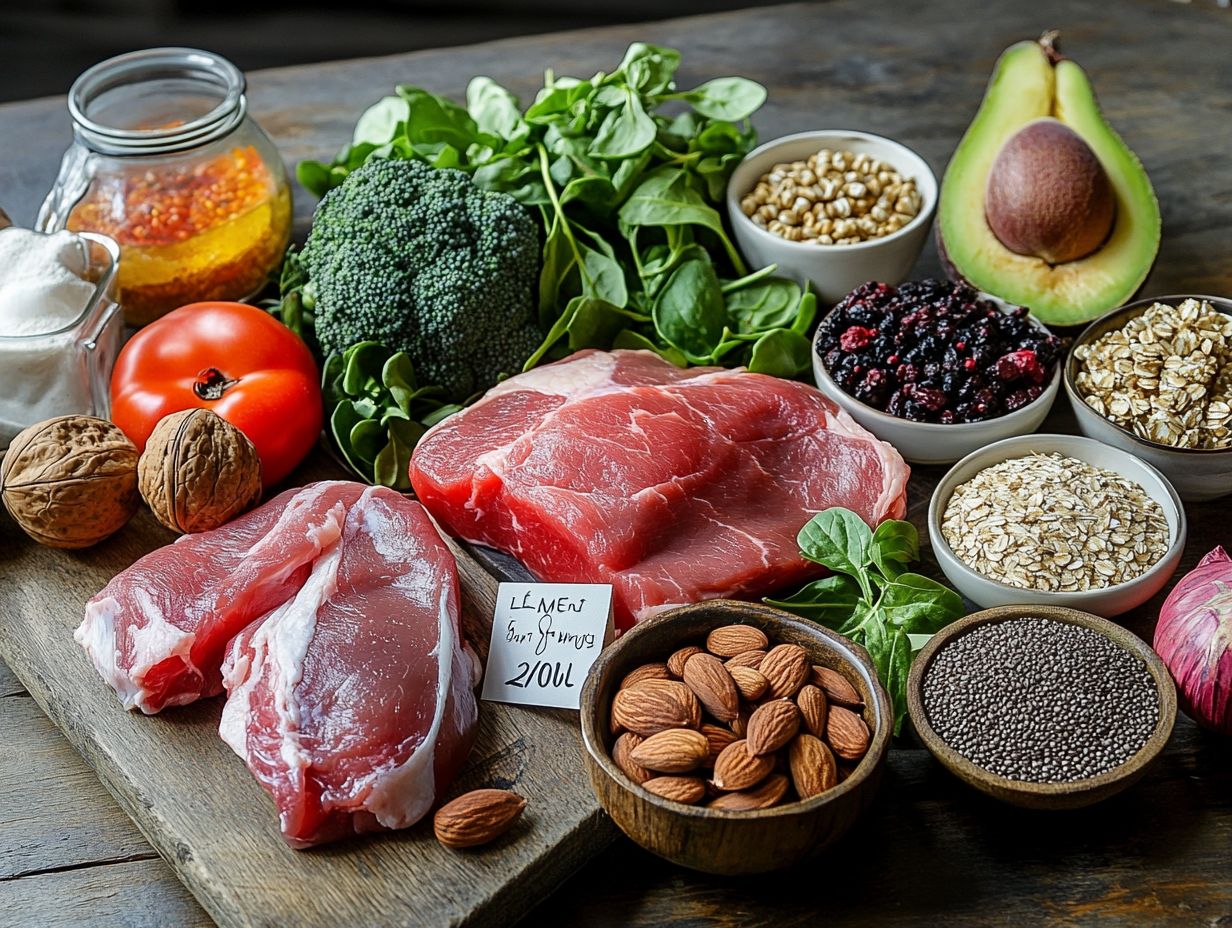
What are the top sources of nutrients for athletes?
The top sources of nutrients include lean proteins like chicken, fish, and eggs, complex carbohydrates such as whole grains, fruits, and vegetables, healthy fats like avocados and nuts, and hydration from water and sports drinks. For more detailed information, check out the top sources of nutrients for optimal metabolism.
Why do athletes need specific sources of nutrients?
Athletes have higher caloric and nutritional needs due to intense physical activity. They require specific nutrient sources to fuel their bodies and support muscle repair and growth.
What specific nutrients are important for athletes?
Important nutrients include protein for muscle repair, carbohydrates for energy, healthy fats for joint and heart health, and electrolytes for hydration and muscle function.
Are there any vegetarian or vegan options for athletes?
Yes, plenty of vegetarian and vegan options exist for athletes to get necessary nutrients. Examples include tofu, beans, lentils, quinoa, and plant-based protein powders.
Can athletes get all their necessary nutrients from food alone?
In most cases, yes! A well-balanced diet packed with whole foods can give athletes all the nutrients they need to thrive. Some athletes need supplements to meet their specific needs, like vitamin D for strong bones or iron for better endurance.
How much hydration do athletes need during exercise?
The required water intake during exercise depends on the activity’s intensity and duration, as well as individual factors like how much you sweat. Aim to drink 8-16 ounces of water every 15-20 minutes while exercising to stay at your best!

